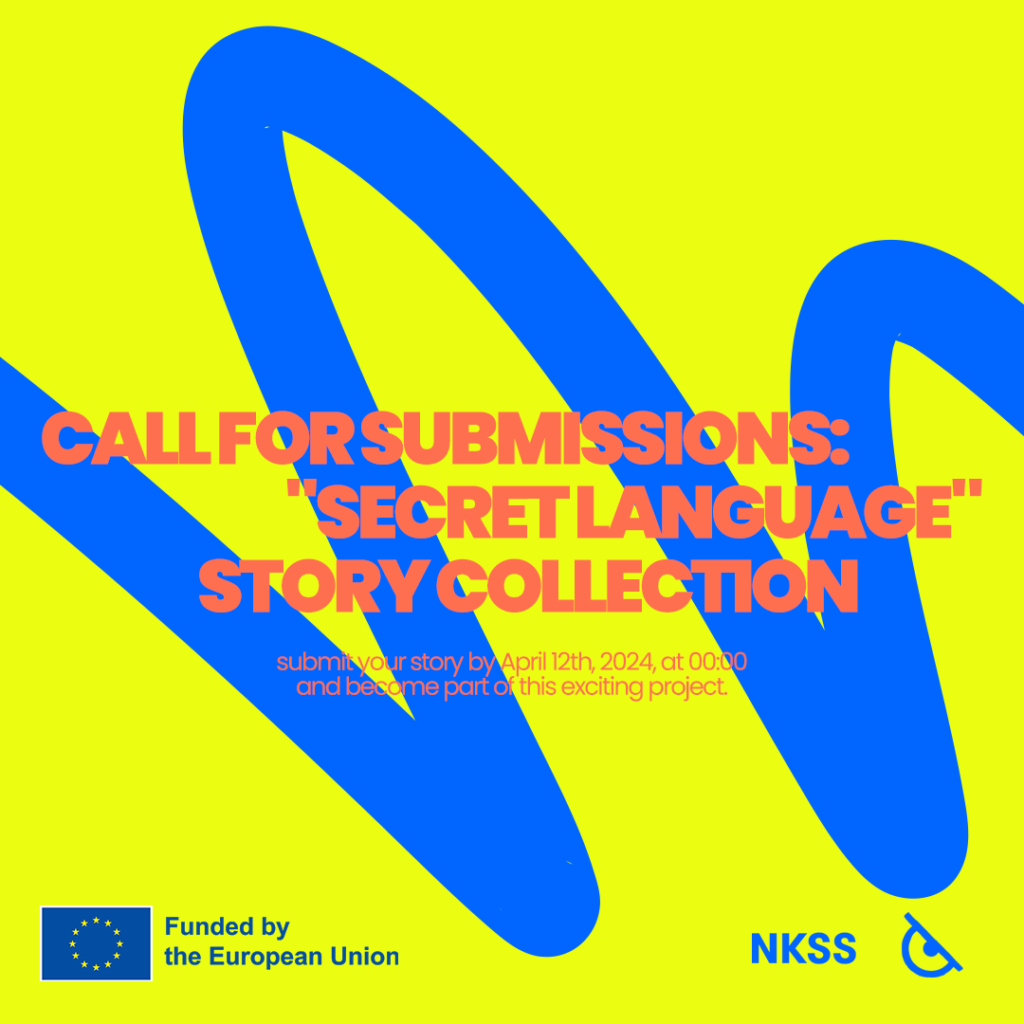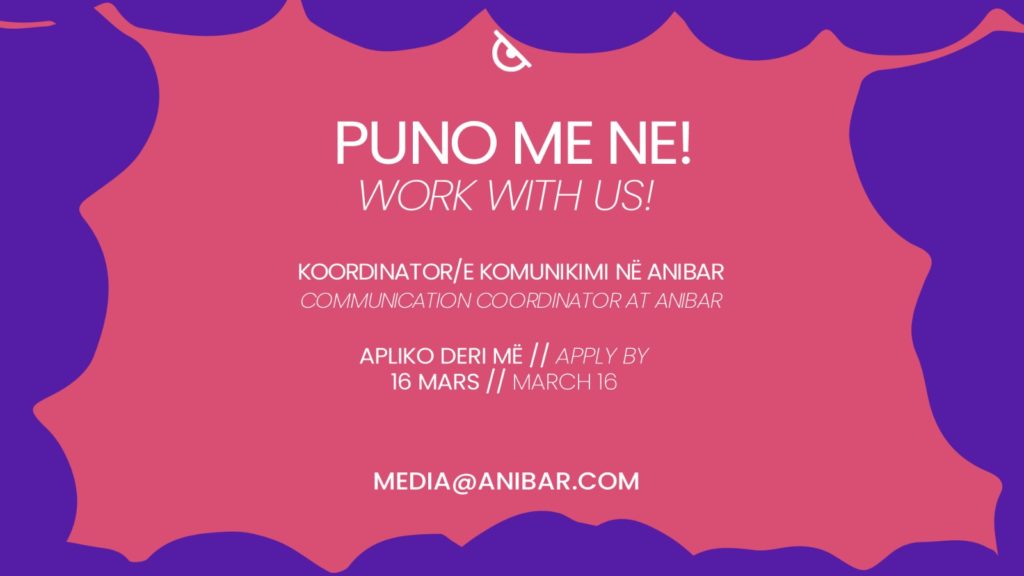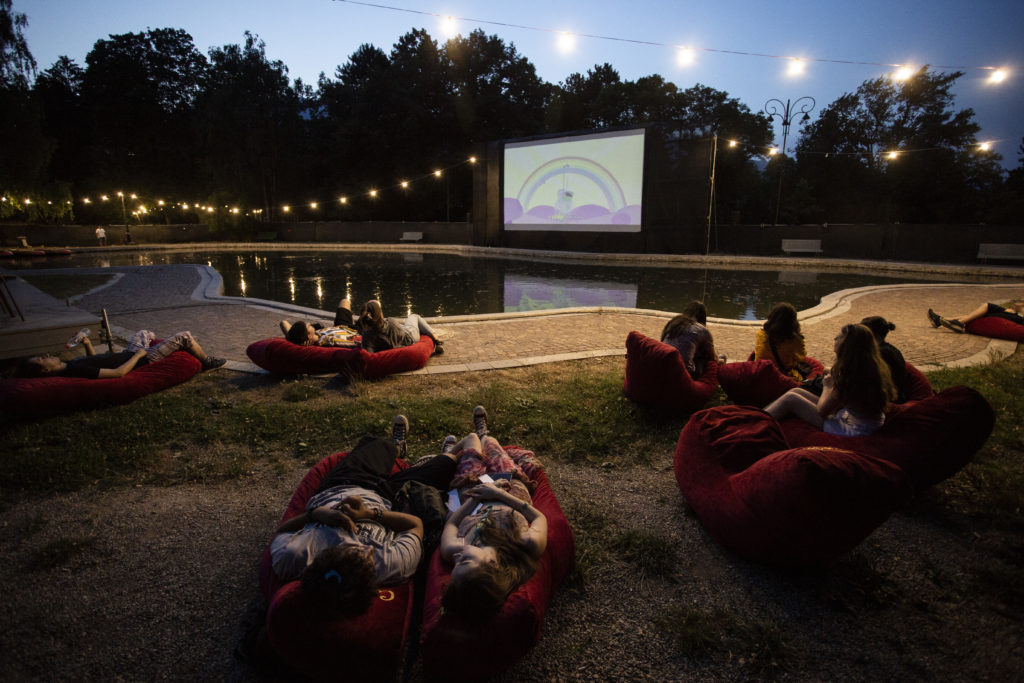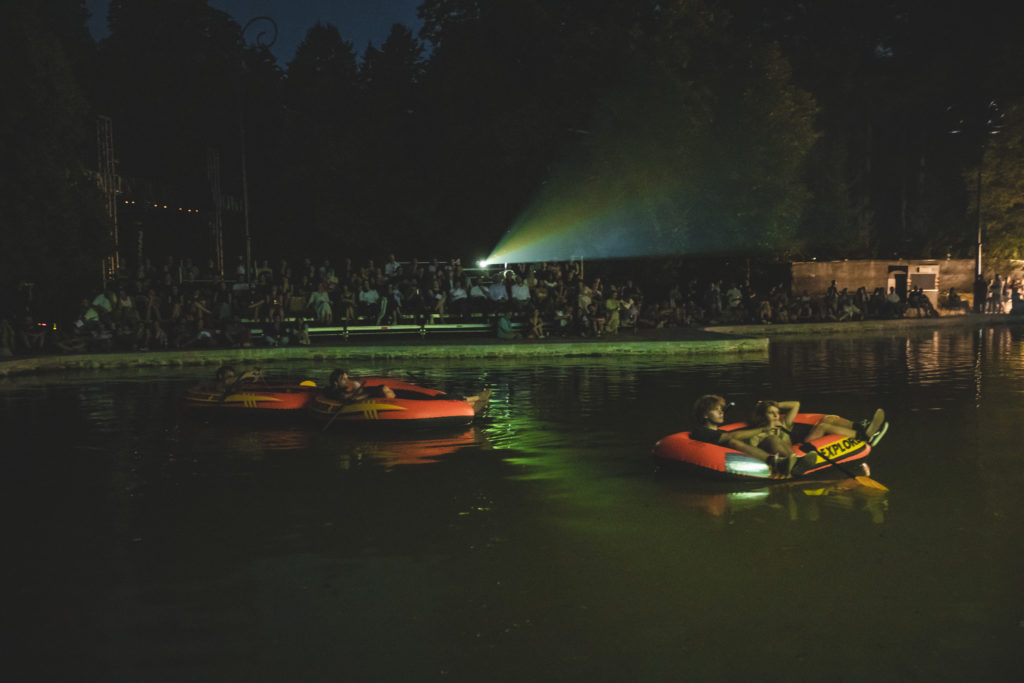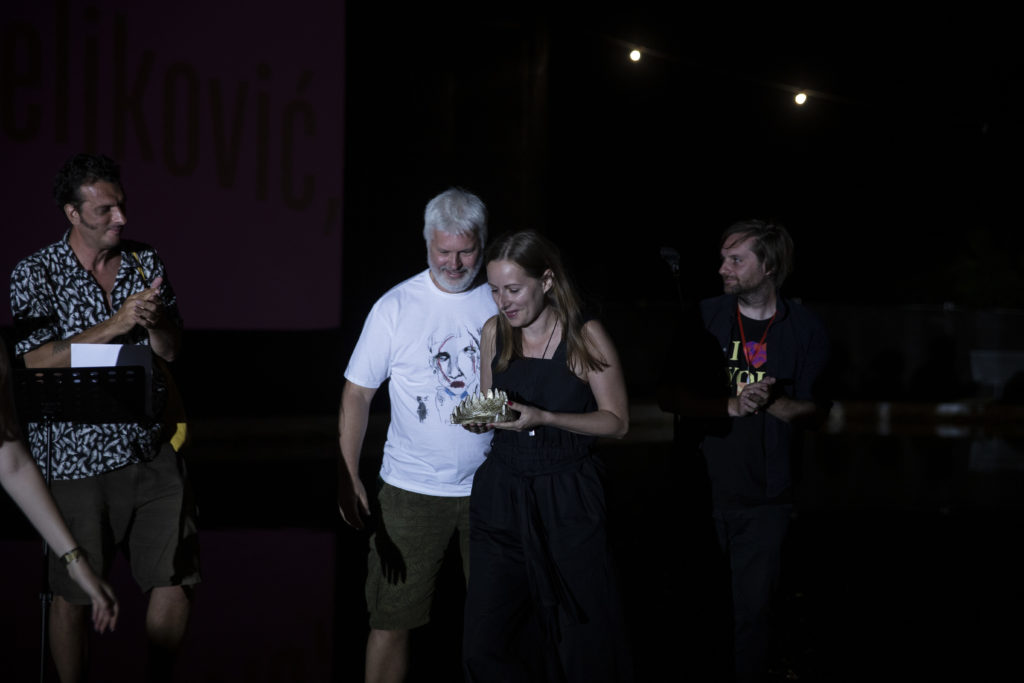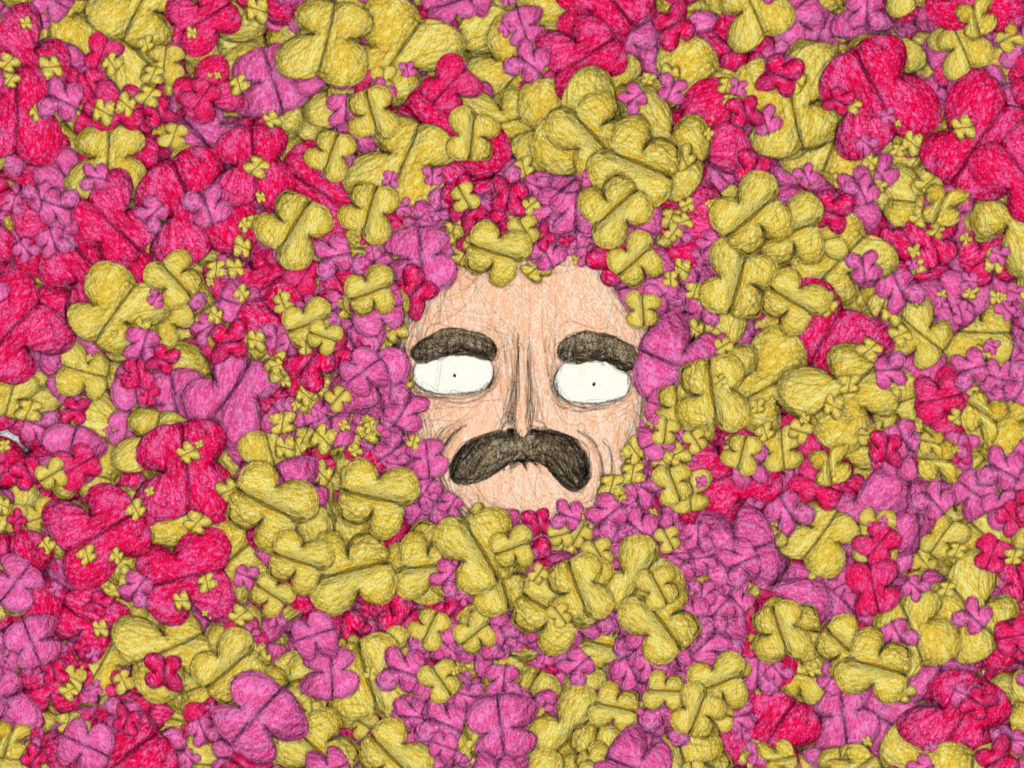First Panel at Anibar Discusses Activists’ Dissatisfaction with the Civil Code
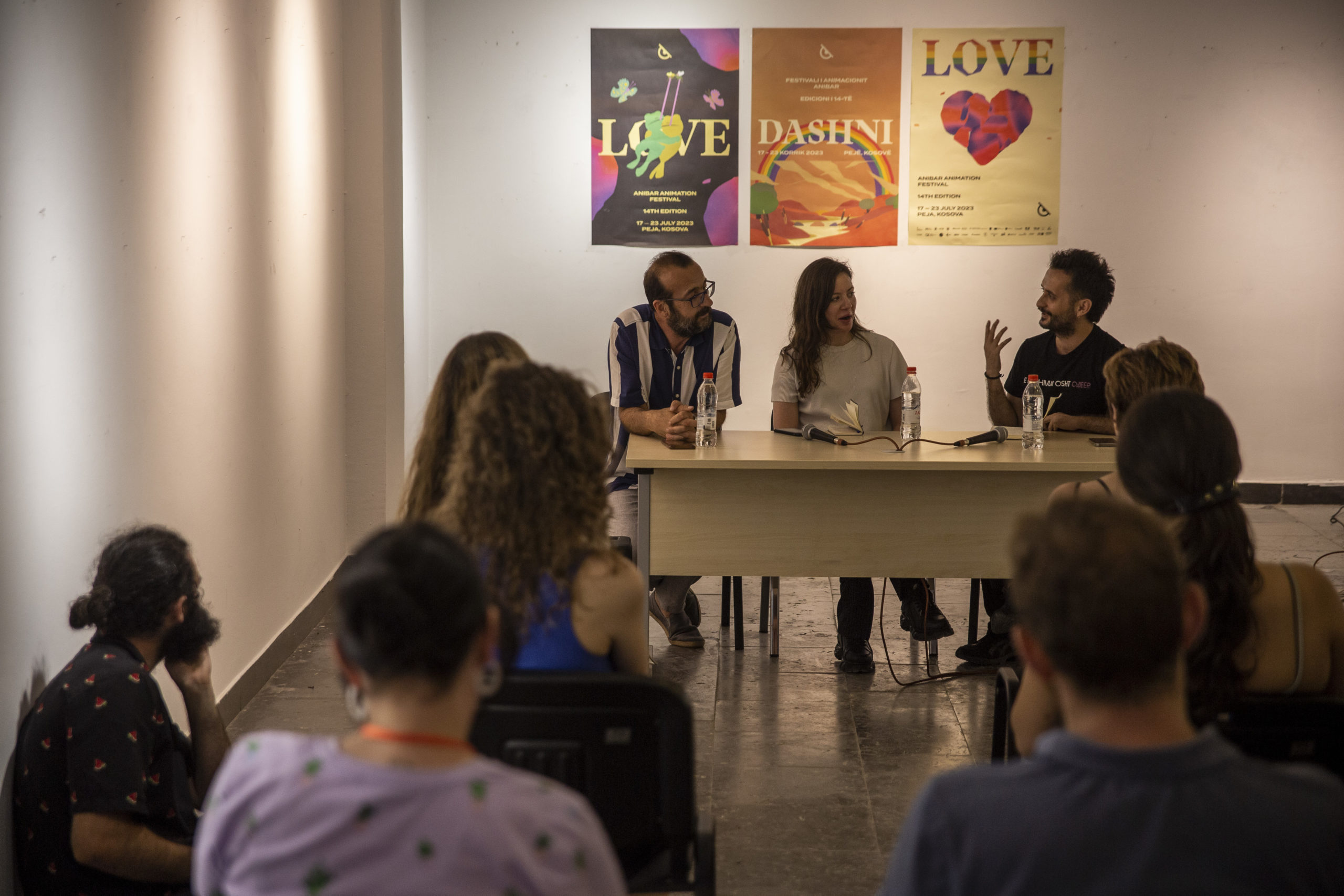
Human rights and Queer community activists in Kosovo, critical of decision-makers
Peja, July 18, 2023 – On the second day of the program of the 14th edition of the Animation Festival – Anibar in Peja, a series of thematic discussions also began. Today, at the Art Gallery in Peja, the panelists, including Arbër Nuhiu from CSGD, cultural anthropologist Bjeshkë Guri, and activist and sociologist Ramadan Sokoli, discussed the rights of the Queer community in Kosovo and recent developments related to the lack of political support for the adoption of the new Civil Code of Kosovo and thus, legal recognition of same-sex marriage in Kosovo.
Despite numerous controversies, debates, campaigns, and hateful language displayed against the demand for legal recognition of same-sex marriage and, in particular, the Civil Code as a document, the activists present on the panel today raised critical questions regarding whether the Civil Code, as drafted, actually empowers the Queer community.
Arbër Nuhiu, one of the founders of the first non-governmental organization in Kosovo for the advancement and advocacy of LGBTQ+ rights, expressed skepticism regarding the document and its content.
“Although the Constitution of Kosovo guarantees human rights and the rights of the Queer community in its text, the same is not reflected in the Civil Code,” he stated.
Regarding legislation, Nuhiu emphasized that the current legal framework does not adequately address issues related to adoption, surrogacy, and the overall recognition of LGBTQ+ families. He stressed that these are the main problems that go beyond the question of who can marry whom but are the actual obstacles to why the Civil Code is being opposed.
Nuhiu also spoke about the challenges with the current government, mentioning that issues with left-wing parties, including the one currently in power in Kosovo, are more pronounced than with right-wing parties that were declared conservative in the past. He highlighted the need for better engagement with institutions and underscored the importance of international support to achieve progress.
Meanwhile, Bjeshkë Guri, representing the Youth Initiative for Human Rights (YIHR) in Kosovo, expressed that this year, people’s presence at Anibar throughout the festival is a political act, emphasizing the freedom to identify oneself without infringing on the freedom of others. Guri discussed the impact of homophobia, particularly its emergence after the war as a tendency influenced by external forces and system changes.
“While Prishtina has seen some progress regarding the rights of the Queer community, the situation in rural areas remains challenging, with daily instances of violence against queer individuals. It is heartbreaking”, she told the participants. She also discussed the varying approaches of organizations involved in advocating for human rights, stating that some hesitate or distance themselves due to public criticism, even in favor of same-sex marriage. However, Guri stressed that these challenges are common in the human rights field.
As the moderator, Ramadan Sokoli expressed appreciation for this year’s Anibar theme and emphasized the need for more events and courage to discuss important social issues, even outside Prishtina. The expansion of LGBTQ+ rights discussions beyond Prishtina was identified as a challenge by the panelists. They noted that Anibar, an international animation festival, has taken steps to address this issue by reaching audiences outside the capital.
Leonora Aliu
